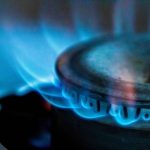Millions of households will still be living in fuel poverty by the end of the decade, and could be forced to pay almost £500 a year extra on their bills because of the government’s slow progress on meeting its home energy efficiency targets, according to a study.
A fuel poverty charity has found that 3m households in England are expected to remain in fuel poverty by 2030 because the government is expected to miss a legally binding target on upgrading the energy efficiency of homes “by a staggering margin”.
The findings mean that the poorest households could be left paying on average £480 more a year on their gas and electricity bills because they are trapped in “cold, damp and unhealthy” homes, according to National Energy Action (NEA).
More than 2m UK prepay meter users to be cut off from gas or electric this winterRead more
The report, undertaken for NEA by consultants at Gemserv, urged the government to address a funding gap of at least £18bn needed to undertake enough measures to ensure that fuel-poor homes in England are brought up to a reasonable standard of energy efficiency by the end of this decade.
Adam Scorer, the chief executive of NEA, said: “Based on current ‘progress’, we estimate 3m households in England alone will still be trapped in fuel poverty by 2030 – the same number who are currently in fuel poverty in England. Three million households left cold, damp and unhealthy. Governments risk missing their legal targets, but those living in fuel poverty are at risk of so much more.”
Angus Brendan MacNeil, the chair of the energy security and net zero committee, said the report should be “a wake-up call” for the government to redouble its efforts on upgrading home energy efficiency.
He said: “As a committee, we have heard countless times about the energy crisis continuing to have a devastating effect on the most vulnerable in our society. Millions of the poorest households across the UK continue to be exposed to the worst of the crisis due to the low level of energy efficiency in their homes.”
The study found that the strategies that each UK nation had put together to address fuel poverty – through better home insulation and other efficiency upgrades – had been overwhelmed by the scale of the energy cost crisis.
In England, the government’s target is for all fuel poor households to reach an EPC rating of C by 2030 but the report found a widening gap in funding required to meet this legal requirement. Fuel poverty is defined by NEA as when a household needs to spend at least 10% of its income on maintaining a satisfactory heating regime.
NEA estimates that of the £18bn needed to reach England’s fuel poverty target, £10.8bn would be publicly funded alongside an additional £7bn-£8bn of private funding from landlords.
If equivalent targets were placed across the UK, additional government funding of £1bn would be required in Wales, £1.6bn would be needed in Scotland and £400m would be needed in Northern Ireland.
skip past newsletter promotion
Sign up to Business Today
Free daily newsletter
Get set for the working day – we’ll point you to all the business news and analysis you need every morning
Enter your email address Enter your email address Sign upPrivacy Notice: Newsletters may contain info about charities, online ads, and content funded by outside parties. For more information see our Privacy Policy. We use Google reCaptcha to protect our website and the Google Privacy Policy and Terms of Service apply.
after newsletter promotion
Caroline Flint, the chair of the Committee on Fuel Poverty, which advises the government, said: “While we cannot control global energy prices, we can and must insulate vulnerable people from current and future energy shocks by investing in our housing stock.
“Strategies for fuel poverty must be kept updated and need to be far more ambitious. If we do, we can all do so much more to help those who cannot currently afford to keep warm every winter and whose health and wellbeing is currently in serious risk.”
A spokesperson for the government said: “Almost half of all homes in England have an energy efficiency (EPC) rating of C or above, up from 14% in 2010, and we estimate that more than 300,000 of Britain’s least energy-efficient homes will be improved up to 2026 – helping to heat homes and save families money on their bills.
“We’ve changed the law so rogue social landlords can no longer hide from their responsibilities and must act quickly when issues are raised, including damp and mould, as we work to introduce strict time limits to fix homes through Awaab’s Law.”



